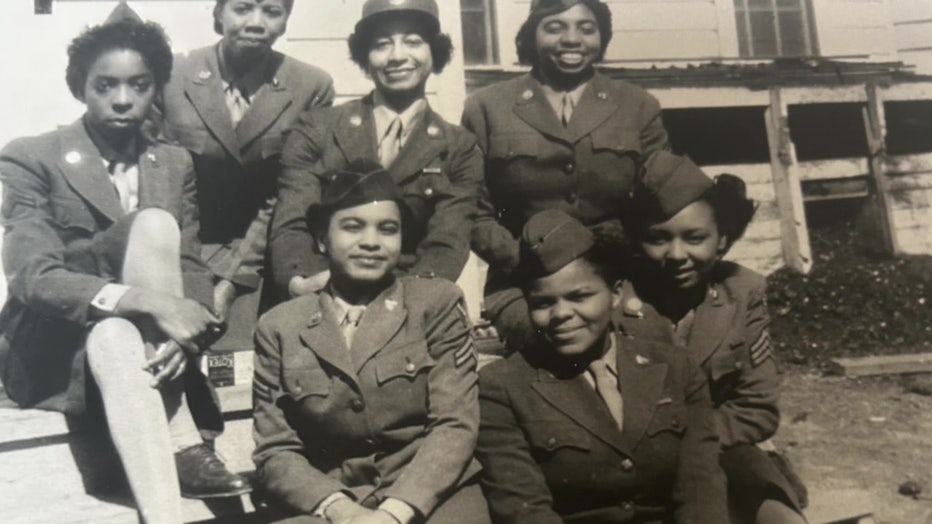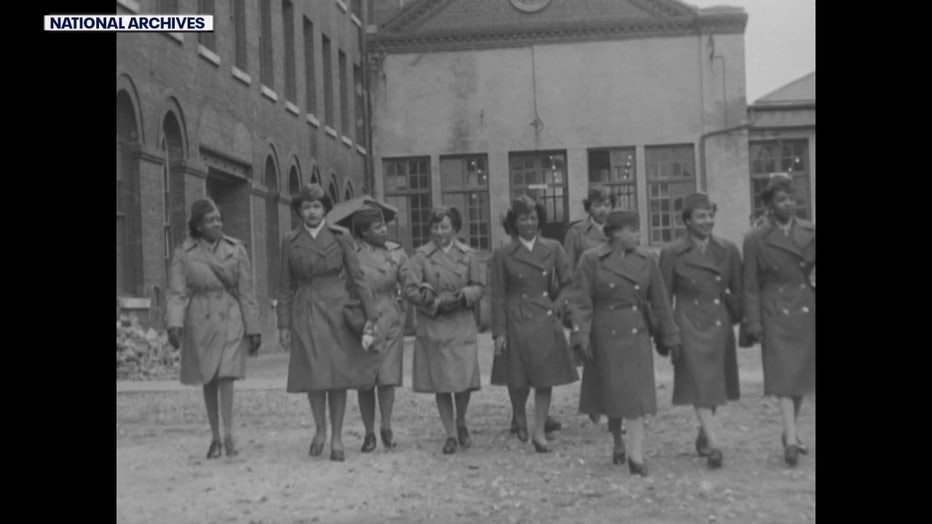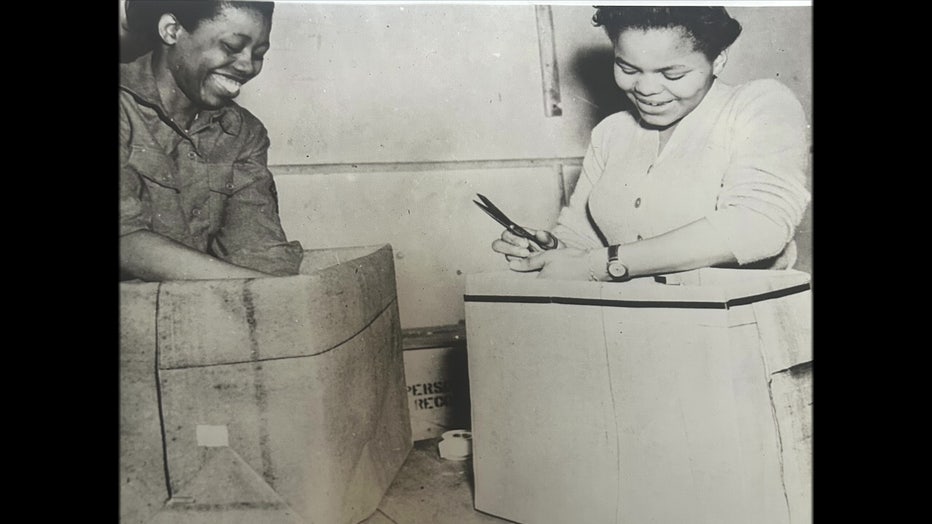The story of the 6888th: Only all-Black female army unit deployed to Europe in WW2

The 6888th: All-Black female army unit during WW2
Usually when we think of World War 2, images of Allied forces storming the beaches of Normandy during the invasion of Europe come to mind. But behind the scenes, the courage and dedication of a group of pioneers achieved a different kind of victory, while helping the effort to win the war.
(FOX 9) - Usually, when we think of World War 2, images of allied forces storming the beaches of Normandy during the invasion of Europe come to mind.
But behind the scenes, the courage and dedication of a group of pioneers achieved a different kind of victory, while helping the effort to win the war.

Breaking down barriers and blazing trails
What we know:
Virginia Lane Frazier was born in Minneapolis to a family with deep roots in the African American community.
Her grandmother, Ophelia Rice, came to Minnesota through the underground railroad, and was one of the founders of Bethesda Baptist Church in the late 1800s.
Virginia Nwas a member of Wayman A.M.E. Church in North Minneapolis and sang with her two older sisters as "The Lane Sisters".
"She sang. She played the piano. She played the trombone. She was very active in the community," said her daughter Sandra Dean.
After moving to the nation's capitol with her sisters in the early 40s, Frazier was one of a handful of Black women from Minnesota who enlisted in the U.S. Army Women's Corps.
Dean says it was an opportunity for Virginia to travel while meeting other African American women from all over the country.
"It was a community. They all looked out for each other. They all pitched in and she welcomed it. She'll tell anyone if she had to do it all over again, she would do it," said Dean.

No mail, low morale
The backstory:
In February 1945, Frazier landed in Birmingham, England as part of the 6888th.
Their assignment? To process warehouses full of undelivered mail that left soldiers unable to get word from their loved ones back home.
"It seems like a small task, but it was a monumental task in terms of how much they had to move but also very impactful on fellow humans," said Jokeda Bell, who wrote an article about Frazier for the Minnesota Historical Society.
Working out of a bombed out school and under the constant threat of air raids, the roughly 800 women of the 6888, cleared 65,000 pieces of mail per shift, three shifts a day, seven days a week.
They were given six months to complete their mission, but they finished it in three, while creating their own system for tracking down service members, who were constantly on the move.
"Kind of inspiring to know that this wasn't just a physical task, but that this is a task that took a lot of brainpower too," said Bell.
They helped the fight for freedom halfway around the world, even though they didn't have full civil rights here at home.
"She said it's interesting how we were treated better over there than we were over here," said Dean.
"I just feel like World War 2 is usually taught as a white male fight, right? It's another lens or another way to understand the war. It's a way to kind of challenge this idea of who was fighting and why," said Bell.

Unsung heroes of WW2
What they're saying:
After the war, Virginia returned to Minneapolis briefly, before marrying her husband Arthur, who she met while serving in France, and moved to California, where they raised eight children.
Dean says her mother often attended reunions of the 6888th over the years, until she passed away in 2012.
She was buried at Fort Snelling National Cemetery.
The unit received little recognition immediately after the war, but Tyler Perry wrote and directed a movie based on the women's experiences for Netflix that debuted back in December.
The battalion was also awarded the Congressional Gold Medal a few years back.
"I think it should be part of our history that should have been told a long time ago. But I'm just glad that that is being shared now with everyone," said Dean.
Dean says Virginia and the other Minnesotans who served in the 6888th helped pave the way for the integration of the armed forces, while providing comfort to millions through the seemingly simple act of delivering a letter.
"Minnesota should be very proud that they are represented in this group of very talented, smart women who were able to accomplish so much in such a short period of time," said Dean.

